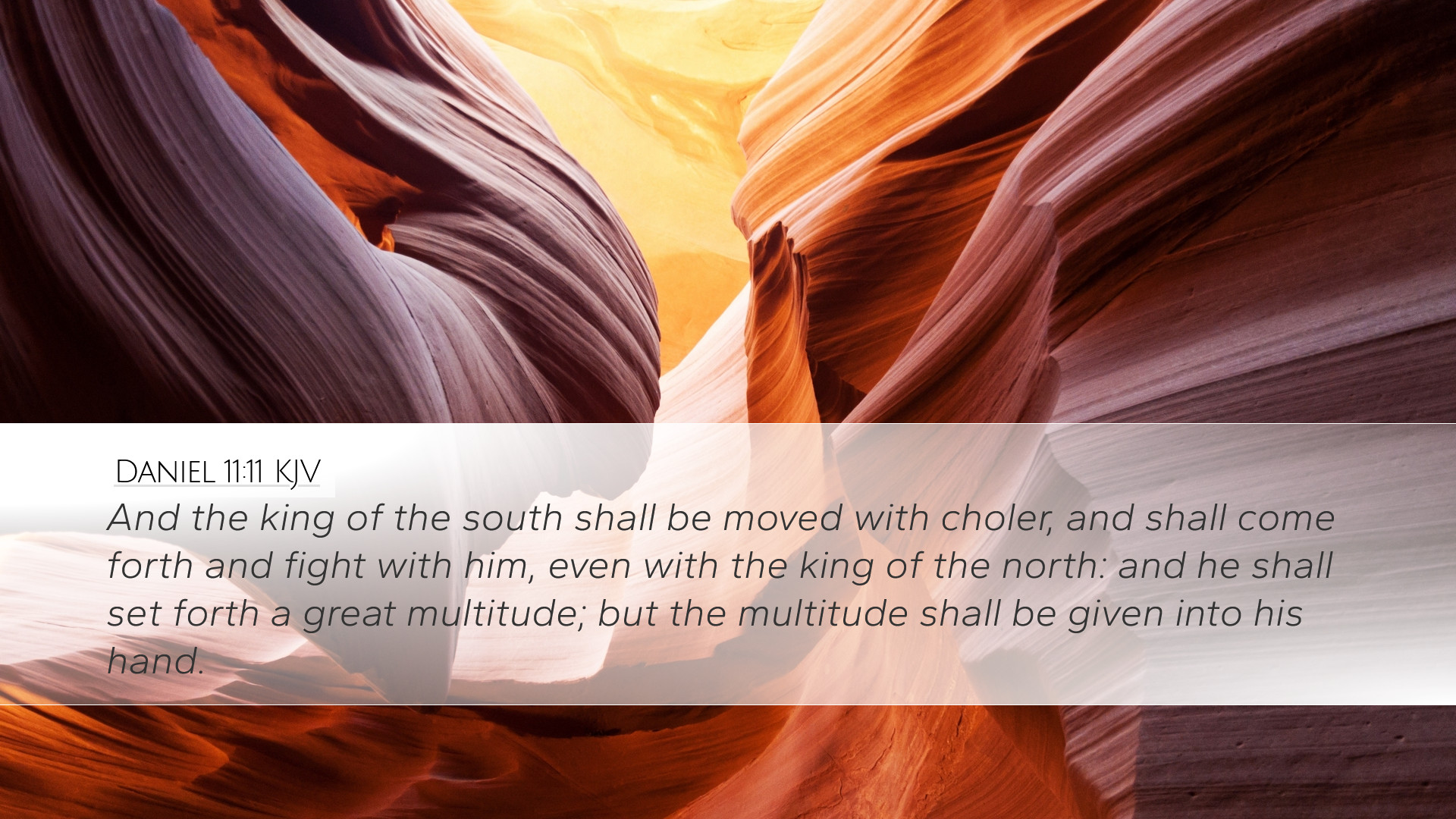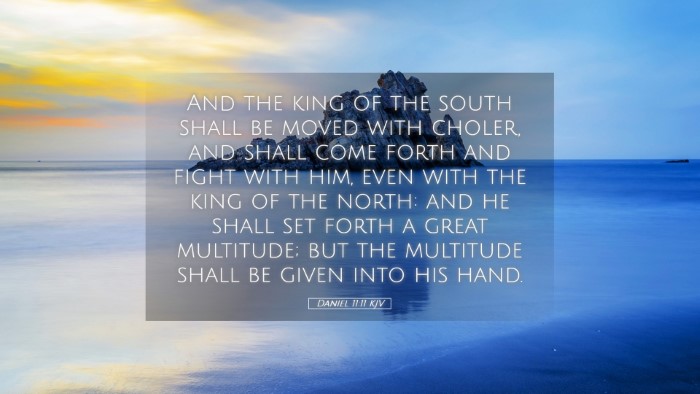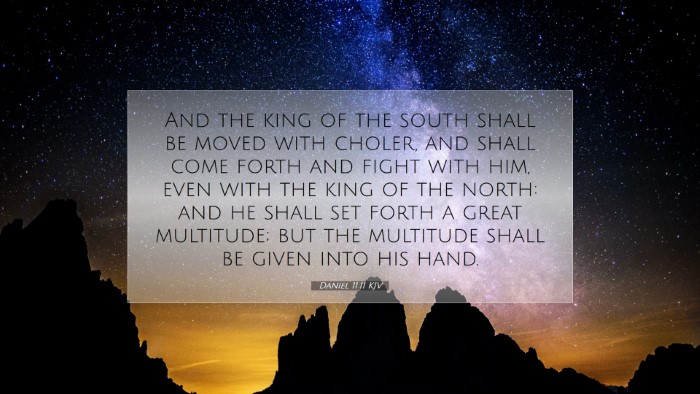Commentary on Daniel 11:11
Daniel 11:11 states: "And the king of the south shall be moved with choler, and shall come forth and fight with him, even with the king of the north: and he shall set forth a great multitude; but the multitude shall be given into his hand." This verse is a part of the prophetic dialogue found in the Book of Daniel, which speaks about the contention between the kingdoms of the North and South, representing various historical powers.
Historical Context
This chapter identifies the ongoing struggles between the Ptolemaic Kingdom of the South (Egypt) and the Seleucid Empire in the North (Syria). The "king of the south" typically refers to the rulers of Egypt, arising historically from the line of Ptolemy, whereas the "king of the north" generally refers to the Seleucids. Biblical students note that these conflicts symbolize not only literal realms but also spiritual dichotomies.
Commentary Insights
According to Matthew Henry, the king of the south, upon being provoked ("moved with choler"), symbolizes the emotional and aggressive nature of earthly rulers who are influenced by pride and ambition. His coming forth to fight illustrates the persistence of earthly kingdoms to assert dominance, foreshadowing the inevitable conflict.
Albert Barnes expands this observation by pointing out that the king's readiness to engage in battle with a "great multitude" illustrates the broader theme of conflict inherent among nations. The phrase "and the multitude shall be given into his hand" demonstrates a divine element—where despite the apparent strength of the forces, the ultimate outcome is under God's sovereignty. This reflects the tension between human power and divine will.
Adam Clarke interprets the "great multitude" as not just a physical army, but a representation of the multitudes of both forces that arise to fight for causes believed to be just. He posits that this multitude is indicative of the struggles that often appear insurmountable to humanity, yet are orchestrated under the watchful eye of Providence. This also speaks to the futility of human endeavors against God's predetermined designs.
Theological Implications
This verse, like many in the Book of Daniel, underscores the importance of seeing God's sovereignty in the affairs of men. The theological implications are profound as it moves from mere historical recounting to a deeper understanding of God's control over human history. The conflicts are not simply battles for territory, but exist within the context of God's overarching plan for humanity.
Lessons for Pastors and Theologians
- Understanding Sovereignty: Pastors are reminded to instill in their congregations a belief in God's sovereignty, encouraging them to trust in God's plans even amidst chaos.
- Conflict and Morality: The moral dimensions of conflict should be explored, asking the questions: What drives us to conflict? How can we respond faithfully as Christians?
- Hope Amidst Conflict: There is a reminder that even in political and social turmoil, believers must hold fast to the hope found in Christ’s eternal kingdom, which transcends earthly kingdoms.
Application for Students and Scholars
- Critical Exegesis: Students are encouraged to engage with the text critically, researching the historical context to grasp the depth of the prophecy.
- Connecting Themes: Scholars can draw connections between past conflicts described in Daniel and contemporary global tensions, providing insights into the cyclical nature of history.
- Theological Reflection: This verse encourages scholarly reflection on the nature of God’s providence and how it plays out in the midst of human strife, serving as a foundation for deeper theological discourse.
Conclusion
Daniel 11:11 not only serves to chronicle historical events but opens the door to rich theological exploration concerning human conflict, divine sovereignty, and the nature of power. It reminds believers of the larger narrative in which they exist—one where God's hand is at work through the rise and fall of empires, and ultimately pointing towards His everlasting kingdom. This passage remains relevant as it calls all readers, from pastors to scholars, to engage deeply with the Word, understanding both the historical and prophetic implications of scripture.


